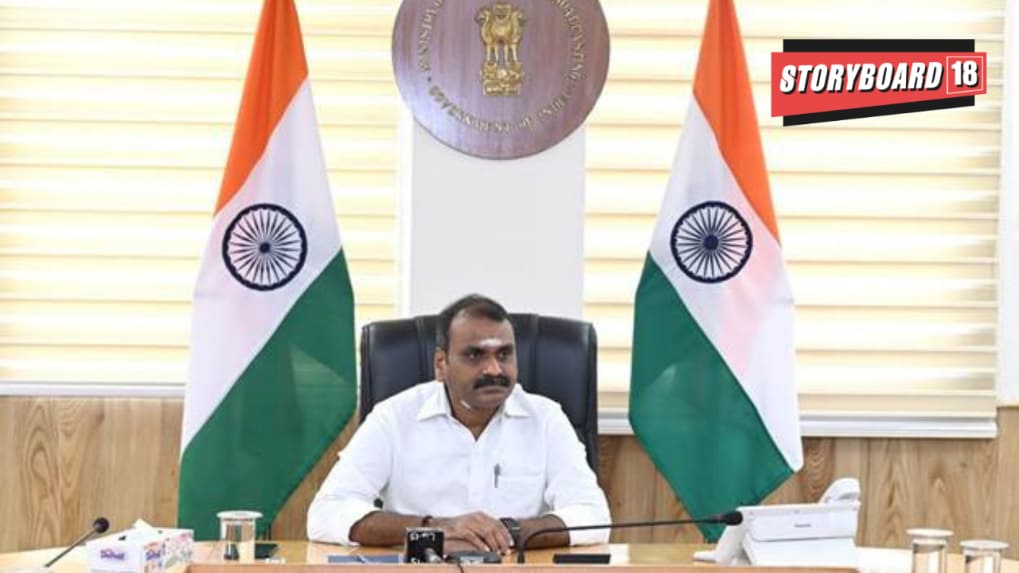Indian cinema driving global influence and economic growth, says Union Minister L Murugan
Speaking on the third day of WAVES 2025, Minister of State for Information and Broadcasting, Dr. L Murugan, highlighted India’s cinematic achievements, economic impact, and the government’s commitment to a thriving, globally competitive entertainment ecosystem.
ADVERTISEMENT
Union Minister of State for Information and Broadcasting, Dr. L Murugan, emphasised the growing global influence and economic power of Indian cinema during his keynote address at WAVES 2025, on May 3.
“Our storytelling, creativity and rich cultural diversity have earned recognition on the world stage, contributing significantly to the global cultural landscape,” he said. “Our Indian films have transcended borders, with an increasing number of productions - achieving both critical and commercial success on international platforms.”
He reminded the audience that the success of Indian films abroad extends beyond headline-making blockbusters. “We all know that films like RRR, Elephant Whisperers, Ponniyin Selvan, Baahubali, like many other movies, are growing our Indian cinema's ability to connect with global audiences,” he added.
Read more: It’s the dawn of the Orange Economy: PM Modi at WAVES 2025
Citing the findings of a new Deloitte- Motion Picture Association report, Murugan pointed to the economic weight of the industry. “The report highlights the significant economic contribution of the Indian film, television, and online content industry in 2024, while supporting more than 26 lakhs jobs across the direct and indirect revenue of the industry.”
Highlighting cinema’s soft power, he said, “Friendship is a powerful medium of communication. It plays an essential role in fostering cultural diplomacy and strengthening bilateral ties between the nations. Through cinema, India continues to project its value, heritage, and innovative spirit, thereby enhancing its status as a leader in global cultural exchanges.”
He stressed the commitment to building a strong ecosystem. “Our government's focus is on developing an ecosystem that enables filmmakers while preserving the cultural and economic values of the industry. Our efforts aim to foster a thriving ecosystem that supports the creative economy and generates new opportunities for collaboration and businesses.”
Further, the Minister highlighted efforts to attract international collaboration. “We are committed to providing incentives for both domestic and international filmmakers who wish to produce and distribute films in India and shoot in India.”
On content protection, he affirmed, “India is steadfast in its commitment to protecting the intellectual property rights of the filmmakers. For content creators, these rights are fundamental to the sustainability of our creative industry.”
Piracy, he said, remains a challenge India is tackling head-on.
Lastly, privacy remains one of the most significant challenges facing the global film industry, and "we are committed to strengthening both domestic and international frameworks to address the issue. India has taken proactive steps through legislative reforms. Last year only, we amended the Cinematography Act to protect the producers from piracy.”
Murugan acknowledged the digital shift in content consumption. “The digital transformation of the entertainment sector has reshaped the way audiences consume content. Streaming platforms have brought about a fundamental change, enabling greater accessibility to films and so on a global scale.”
He concluded by affirming India’s growing digital market potential and its global readiness.
"India's rapidly growing digital market presents a wealth of opportunity for both domestic and international producers. The Government of India is committed to ensuring that the digital ecosystem remains vibrant, inclusive, and fair for all stakeholders.”
In his closing remarks, the Minister said, “The future of the global film industry lies in continued collaboration between government, industry leaders and creators, and international organisations. Together, we must ensure that the industry remains dynamic, diverse, and economically sustainable.
The government looks forward to more collaboration with the Motion Picture Association and all stakeholders, and to positioning India as one of the key players in this global market.”


